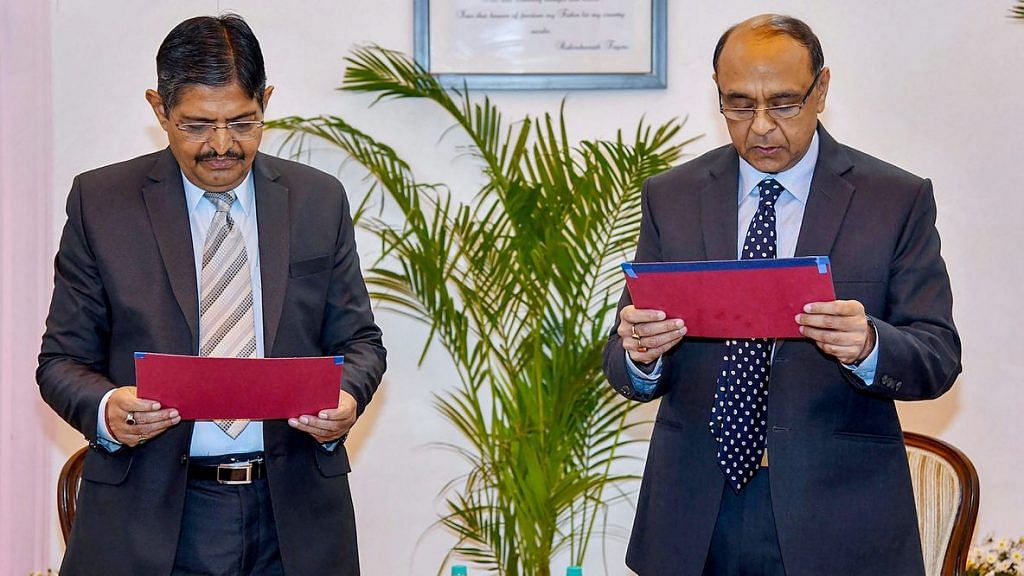Since 1949, 14 of the 25 chairpersons of the UPSC have been from the IAS, IPS and IFS.
New Delhi: The Centre Wednesday appointed Arvind Saxena as the chairperson of the Union Public Service Commission (UPSC), nearly five months after the position fell vacant.
Saxena, formerly an Indian Postal Service officer, was a member of the UPSC, India’s central recruiting agency. He had served as the acting chairman of the organisation after former chairman Vinay Mittal retired on 19 June.
Since it came into existence, the UPSC has been responsible for recruitments to all Group A and B posts of central government, including the Indian Administrative Service (IAS), Indian Police Service (IPS) and Indian Foreign Service (IFS) besides central services such as Customs, Income Tax, Audit & Accounts, Railway’s, Posts among others.
Saxena and his predecessor Mittal, who was from the Indian Railway Traffic Service, are among the handful of non-IAS, IPS or IFS officers to have occupied the position. There were also a few academicians who had previously held the position.
Also read: UPSC notifies lowest number of vacancies in 10 years. Is this the Modi effect at play?
IAS, IPS dominated the post
Since 1949, 14 of the 25 chairpersons of the UPSC have been from the IAS, IPS and IFS, show UPSC records. The rest were appointed from the field of academics and other services.
D.P. Agrawal, a former dean at IIT Delhi and the managing director of Educational Consultants India Ltd. (EdCIL), a central PSU, was appointed as UPSC chairman.
The other prominent academicians who held that position were Dr S.R. Hashim, who also worked as the member-secretary of the Planning Commission, M.L. Shahare, who had served on several commissions and boards, and David Reid Syiemlieh, an author.
Experts who have headed UPSC include J.P. Gupta, a chartered engineer and a former chief of the Railway Board, and R.M. Bathew Kharbuli, who had served on various government boards and state public service commissions.
Others who headed the UPSC include R.C.S. Sarkar, former law secretary, and chemist A.R. Kidwai, who later served as the governor of many states. Lt Gen. Surinder Nath from the Indian Army had also headed UPSC between 1998 and 2002.
The appointments to the UPSC chair and its members are made by the President of India and at the discretion of the government.
According to Article 316 of the Constitution, at least half of the members of the UPSC should be former government servants with a minimum of 10 years’ experience.
Also read: IAS officer handpicked by Congress’ Jairam Ramesh in rural ministry joins BJP
